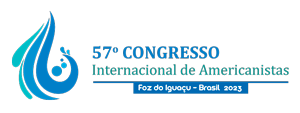| Dados do autor | |
|---|---|
| Sua instituição | University of Florida UF |
| País de origem do autor | Estados Unidos |
| Dados co-autor(es) [Máximo de 2 co-autores] | |
| Sua titulação | Doutor |
| Proposta de Paper | |
| Área Temática | 15. Filosofia e Pensamento |
| Grupo Temático | Towards a Southern Afro-Brazilian and Afro-Latin American Epistemology: a necessary debate on Critical Theory |
| Título | A Diasporic Grammar of Black Educative and Intellectual Thought |
| Resumo | The intellectual history and current trajectory of Black civic engagement, movement, and education continues to be well documented in the United States (Ewing, 2018; Shield, Paris, Paris, San Pedro, 2020), however, it is important to expand the contours of how these concepts are understood relative to blackness in a transnational context. In the case of the US, Black Latinx civic engagement and political mobilization is ensconced “between the cracks” (Flores & Jiménez Román, 2009, p. 319) of the politics of race that views blackness and latinidad as mutually exclusive. Therefore, mapping Black Latinxs onto educational studies and discourses of political thought requires a deep excavation, and rethinking of the archives (Valdés, 2017). Transnationally speaking, Afro-Latin American political thought, mobilization, and intellectuals also fall through the cracks of knowledge production (Smith, 2016b), which is especially the case for Black intellectual thought in education (García Rincón, 2015; Gomes, 2017). |
| Palavras-chave | |
| Palavras-chave |
|
